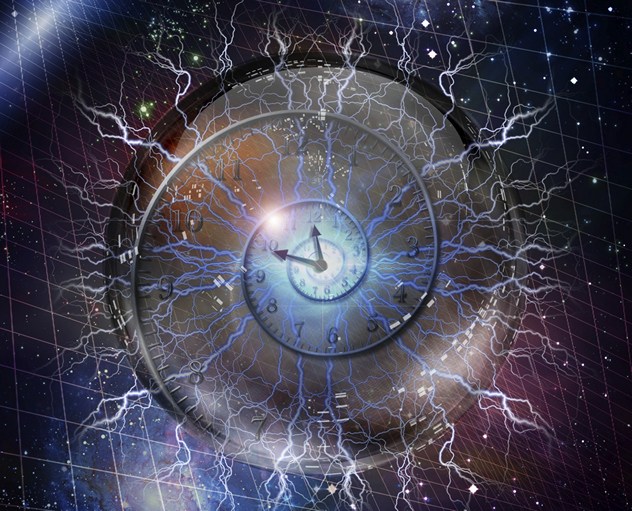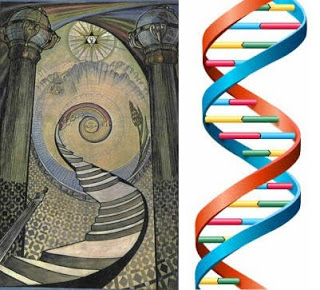 (Phys.org)—Although in theory it may seem possible to divide time up into infinitely tiny intervals, the smallest physically meaningful interval of time is widely considered to be the Planck time, which is approximately 10-43 seconds. This ultimate limit means that it is not possible for two events to be separated by a time smaller than this.
(Phys.org)—Although in theory it may seem possible to divide time up into infinitely tiny intervals, the smallest physically meaningful interval of time is widely considered to be the Planck time, which is approximately 10-43 seconds. This ultimate limit means that it is not possible for two events to be separated by a time smaller than this.
But now in a new paper, physicists have proposed that the shortest physically meaningful length of time may actually be several orders of magnitude longer than the Planck time. In addition, the physicists have demonstrated that the existence of such a minimum time alters the basic equations of quantum mechanics, and as quantum mechanics describes all physical systems at a very small scale, this would change the description of all quantum mechanical systems.
The researchers, Mir Faizal at the University of Waterloo and University of Lethbridge in Canada, Mohammed M. Khalil at Alexandria University in Egypt, and Saurya Das at the University of Lethbridge, have recently published a paper called “Time crystals from minimum time uncertainty” in The European Physical Journal C.
“It might be possible that, in the universe, the minimum time scale is actually much larger than the Planck time, and this can be directly tested experimentally,” Faizal told Phys.org.
The Planck time is so short that no experiment has ever come close to examining it directly—the most precise tests can access a time interval down to about 10−17 seconds.
Nevertheless, there is a great deal of theoretical support for the existence of the Planck time from various approaches to quantum gravity, such as string theory, loop quantum gravity, and perturbative quantum gravity. Almost all of these approaches suggest that it is not possible to measure a length shorter than the Planck length, and by extension not possible to measure a time shorter than the Planck time, since the Planck time is defined as the time it takes light to travel a single unit of the Planck length in a vacuum.
Motivated by several recent theoretical studies, the scientists further delved into the question of the structure of time—in particular, the long-debated question of whether time is continuous or discrete.
“In our paper, we have proposed that time is discrete in nature, and we have also suggested ways to experimentally test this proposal,” Faizal said.
Read more at: http://phys.org/news/2016-02-physicists-implications-quantum-mechanics-philosophy.html#jCp

Moe is the founder of GnosticWarrior.com. He is a father, husband, author, martial arts black belt, and an expert in Gnosticism, the occult, and esotericism.








